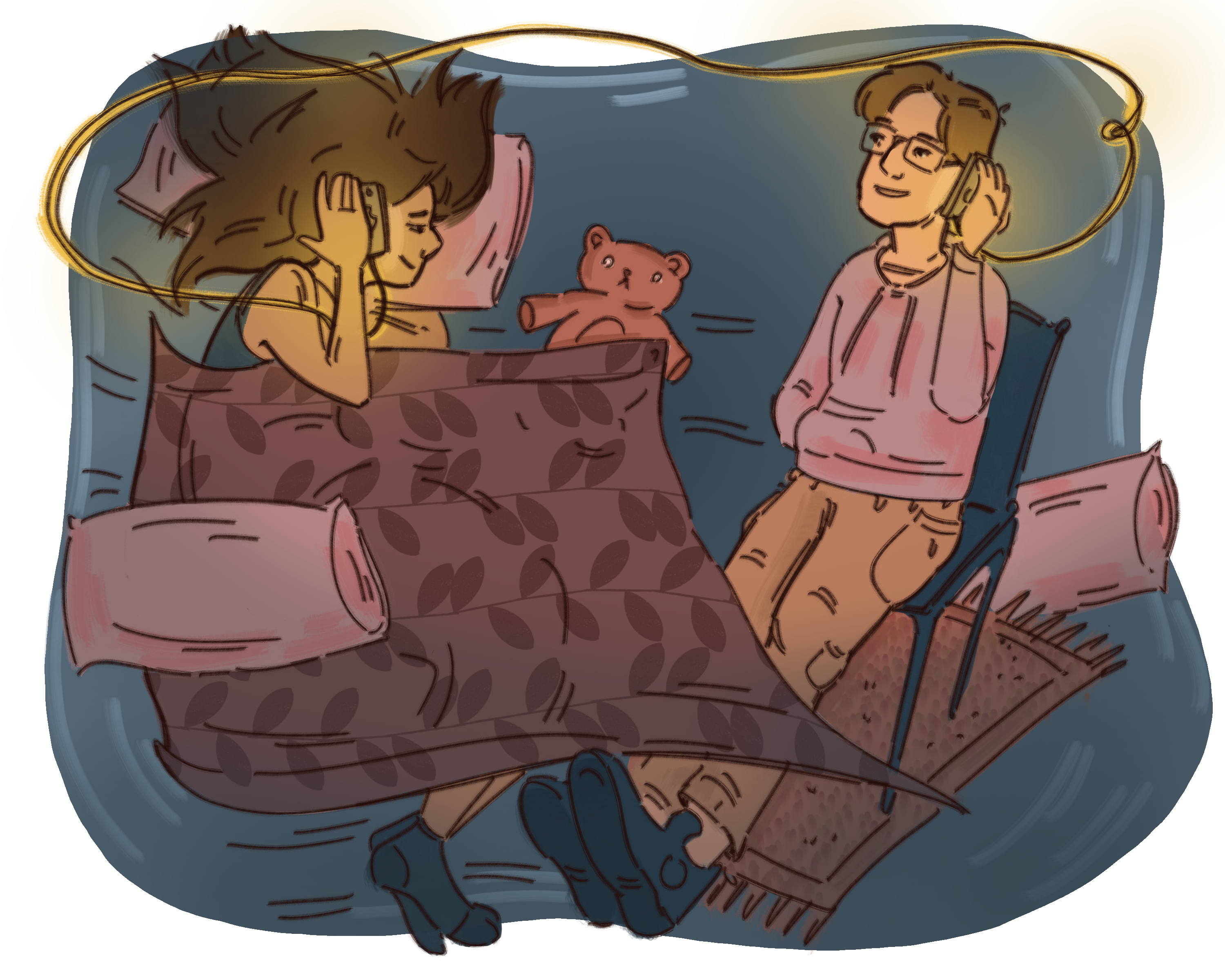Nightline volunteers are there to listen to us when something comes up
On Jan. 11, Concordia Students’ Nightline announced their return for the new semester. After a well-deserved break, their volunteers are back on the lines. Callers can reach out to Nightline during their open hours from 6 p.m. to 3 a.m Wednesday through Saturday. It’s a student-run, fee-levy, anonymous, confidential, and non-judgmental active listening service for Concordians and anyone in need to talk about anything that’s on their mind.
The Concordian spoke with one of Nightline’s volunteers. In order to do their jobs, Nightline volunteers require anonymity and as such we will not reveal their name. This particular volunteer is a fourth-year Concordia student who has been with Nightline for two years. With a soothing and calming energy, the volunteer spoke about their experience working with the service.
“I’ve met so many amazing people through it. We’re like a family and we’re just supportive of each other. I feel like it’s such a good way for me to extend compassion to my entire community,” they expressed.
Nightline volunteers undergo thorough training to become active listeners. With the phone ringing on a daily basis, they are always busy as Nightline’s volunteer said every call is different and unexpected. However, they strive to make the conversation work in every situation.
“You have to be prepared for anything when taking calls because you can never have any idea of how the call is going to go when you pick up the phone, obviously you don’t know anything about that person, you don’t know what mood they’re going to be in, or anything about their situation,” they said.
Brooks Reid-Constantin has been the vice-president external of Nightline since May 2022. She, along with the rest of Nightline’s team, know what goes into being an active listener. Reid-Constantin says people sometimes just want to talk without receiving new information and know that any sentiment they’re feeling is validated.
“We’re there to listen without judgment, without giving our personal opinions, or personal biases, and without actually giving advice. Just holding space for the caller and being there so that they can voice any concerns or thoughts they’re having,” said Reid-Constantin.
The volunteer faced challenges when they started, mainly regarding what it truly means to be an active listener.
“The thing that took the most time for me to learn was really taking that step back and learning not to always be trying to lead people towards a solution, and learning the value of just being there for someone,” they said.
Active listening has not only been a helpful tool for this volunteer’s everyday life with their peers, but engaging with their community and friends through conversation helps build connections by using their listening skills and compassion for whoever’s on the other end of the line.
“It’s a way that I can now establish this real connection with someone over the phone who I know nothing about, we both don’t know each other, and we might never talk to each other again, I still feel that we can have this extremely real connection during the call,” they said.
This Nightline volunteer plans to stay with the service until they graduate and continue to spread their empathy, time, and kindness to those who need it. They’re continuing to learn new skills through experience, their coworkers, their executives, and every call.
Brooks always makes sure every volunteer is considered. Nightline volunteers are never alone in their environment and the sense of family shines through.
“We have meetings where we go through everything and make sure that the volunteers can talk, be heard, and also have a safe space to go over any of the emotions that they’re feeling. If you need a second, or you need help, or you need support, we’re there for you. Whatever we extend to our callers, we extend to our volunteers,” she said.
Haneefa Merchant is a psychology student and the vice-president external of the Stronger Than Stigma association at Concordia, which encourages conversations about mental health, and attempts to reduce the stigma behind it. For many, it’s not always easy to share their mental health struggles and have access to a mental health service. Even when Merchant was growing up in a conservative town in Saudi Arabia, she had access to open mic outlets where people talked about their personal stories. Hearing their stories brought her a lot of perspective that everyone deserves to be heard.
“Sometimes it’s hard to talk to your friends about some things, which is fine, we all have our moments […] but this is a great way to call Nightline and you can talk about it,” she said.
She comes back to how therapy isn’t always accessible to everyone, and services such as Nightline, which aren’t the “traditional” forms of mental health support, include more than just talking about personal things on the phone; it’s a form of healing. The work of an active listener isn’t always talked about.
“It is something that should be normalized because I think it’s a wonderful step; it’s not always easy to talk about things,” Merchant said.
Concordia Students’ Nightline volunteers dedicate their time to help fellow Concordians and everyone to give them the listening they need. Even if we can’t see them through the phone or try to picture what they look like in our heads, what matters is that they’re there. Their ears and hearts are always open in the purest intentions, and no amount of words can change that. If you want to know more about Nightline, check out their Facebook page!
